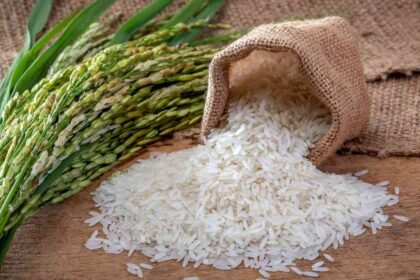Egg provide a wide variety of vitamins, minerals, and high-quality protein, making them one of the most nutrient-dense foods you can eat. The egg is a nutrient-dense food in its entirety, although the white and the yolk have different nutritional profiles.
Many often question if there is a significant difference between the amount of protein in an egg white and an egg yolk, given that protein is such an essential component.
The USDA estimates that one big egg has about 6 grams of protein, with the white contributing around 3.6 grams and the yolk around 2.7 grams. However, the amount of protein in an egg might change depending on where it was laid, how it was stored and handled, and how it was cooked.
This article will discuss the protein composition of eggs, including the variations in protein content between egg whites and egg yolks and the potential influences on this value.
Importance of Protein in a Healthy Diet
The human body can’t operate without protein, a macronutrient that is absolutely crucial to its health. It’s essential for the development, repair, and upkeep of all of the body’s living cells, tissues, and organs. Amino acids are the building blocks of proteins, and thus the human body.
Sufficient protein intake is crucial for normal development, muscle maintenance, and general well-being. In addition to controlling hormones and enzymes, protein contributes to the maintenance of healthy skin, hair, and nails.
Nutritional Benefits of Eggs
Protein, vitamins, and minerals can all be found in plenty in eggs. They have all nine of the essential amino acids, making them a complete protein. Vitamin D, which is essential for bone health and immunological function, is abundant in eggs.
Also present is the essential nutrient choline for healthy brain growth and function. Eggs are a great food for weight management because they are filling and relatively low in calories. Eating eggs for breakfast is a great way to start the day off on the right foot and avoid making poor food choices later on.
Egg Whites and Egg Yolks
The nutritional value of egg whites and egg yolks is distinct. Egg whites are high in protein and low in fat and cholesterol because they are mostly made of water.
Since they are low in calories while yet providing a high quality protein, they are frequently utilized by athletes and bodybuilders to increase and sustain muscle mass. Yet, the yolks of eggs contain numerous nutrients such as vitamin A, vitamin B12, and iron.
Some people prefer to avoid eating whole eggs because of the fat and cholesterol they contain. Recent studies have demonstrated that eggs, despite their high cholesterol content, may be part of a healthy diet when eaten in moderation.
Also See: 17 Best Brain-Boosting Drinks (Juices and Beverages)
Protein Content of Egg Whites
1. Definition of Egg Whites

The transparent fluid that surrounds the yolk in an egg is called egg whites or albumen. They account for roughly 66 percent of an egg’s entire mass and are a particularly good source of protein.
2. Nutritional Content of Egg Whites
One large egg white has only 17 calories, making them a healthy and low-fat option. Furthermore, they contain no cholesterol or fat, making them a wonderful supplement to any diet.
Egg whites are an excellent source of protein, and they also have trace levels of other nutrients including riboflavin, potassium, and magnesium.
3. Protein Content of Egg Whites
One large egg white contains roughly 3.6 grams of protein, making it a great source of high-quality protein. Egg whites are a complete protein, meaning they provide all nine of the amino acids your body needs but can’t make itself. Egg whites are high in protein, therefore they are a great option for vegetarians and vegans who don’t eat meat.
4. Health Benefits of Egg White Protein
There are several positive health effects associated with eating egg white protein as part of a balanced diet. The high-quality protein found in egg whites is crucial for the development and maintenance of muscular mass. They’re great for dieters because they’re low in calories and fat.
The protein included in egg whites has been shown to lower blood pressure and cholesterol levels, thereby protecting against cardiovascular disease. In addition, the protein in egg whites is quickly absorbed by the body, making them a wonderful choice for those who have trouble processing animal protein.
Protein Content of Egg Yolks
1. Definition of Egg Yolks

The yolk is the yellow, spherical substance in the middle of an egg, which is surrounded by the white. They provide both fat and protein and are a good source of nutrients.
2. Nutritional Content of Egg Yolks
Egg yolks are an excellent source of several vitamins and minerals, including A, D, E, and K, as well as B12, folate, choline, and a few others. They’re rich in essential minerals like iron, calcium, and phosphorus, too. One large egg yolk has about 5 grams of fat and 186 milligrams of cholesterol, therefore it’s best to eat egg whites and avoid the yolk.
3. Protein Content of Egg Yolks
Compared to egg whites, egg yolks have a lower protein concentration (around 2.7 grams per big egg yolk). The protein found in egg yolks, despite its low quality, still includes all nine of the body’s required amino acids.
4. Health Benefits of Egg Yolk Protein
Despite their high cholesterol and fat content, egg yolks have several positive health effects. Protein in egg yolks can aid in the development and maintenance of muscle, and the vitamins and minerals they contain are crucial to good health.
The choline found in egg yolks is crucial for proper nerve and brain development. During pregnancy and breastfeeding, choline’s potential to aid embryonic brain development makes it an essential nutrient.
The cholesterol content in egg yolks may be substantial, but studies have shown that healthy people who eat eggs sometimes don’t have a higher risk of cardiovascular disease. It has been suggested that the egg yolk’s vitamin D and calcium content may aid to lower the risk of cardiovascular disease.
Comparison of Egg White and Egg Yolk Protein Content
1. Nutritional Value of Egg White and Egg Yolk Protein
The proteins in both the egg white and the egg yolk are high-quality, complete proteins that include all nine of the body’s required amino acids. There is somewhat more protein in egg whites per serving, but there is a wider variety of vitamins and minerals in egg yolks.
2. Ratio of Protein in Egg Whites and Egg Yolks
Protein makes up the bulk of egg whites, with about 3.6 grams found in one big egg white. In contrast, each large egg yolk contains about 2.7 grams of protein. The protein content per serving of egg whites is higher than that of egg yolks.
3. Calories and Fat Content in Egg Whites and Egg Yolks
A big egg white has only 17 calories, making it a low-calorie food option. Moreover, there is no fat in them. While whites have about 3 grams of protein and no fat, egg yolks have about 55 calories and 5 grams of fat per large egg yolk.
4. Recommended Daily Protein Intake for Adults
Adults have different protein needs based on their age, gender, size, and amount of physical activity. Adults should consume about 0.8 grams of protein per kilogram of body weight per day as a general recommendation. This amounts to roughly 55 grams of protein per day for an adult who weighs 150 pounds (68 kilograms).
Both egg whites and egg yolks are a good source of protein, however egg whites may be a more efficient approach to achieve daily protein requirements without adding extra calories or fat due to their higher protein concentration. It’s also crucial to note that the vitamins and minerals included in egg yolks have their own set of health benefits.
Cooking with Egg Whites and Egg Yolks
1. Recipes Using Egg Whites
Recipes for both savoury and sweet dishes can benefit from the addition of egg whites. Examples of popular dishes that call for egg whites are:
- Meringues: Traditional meringues are made of whipped egg whites and sugar. They can be used as a crunchy cookie topping or sprinkled over baked goods.
- Angel food cake: This fluffy confection is created with beaten egg whites, sugar, and flour. It’s a treat that many people save for special events.
- Omelets and frittatas: Light and tasty omelettes and frittatas can be made with egg whites. Vegetables, cheese, and meat are just some of the options for fillings.
- Soufflés: Made with beaten egg whites and a creamy foundation, soufflés are a sophisticated and attractive dessert. You can have them for breakfast, lunch, or dinner, and they can even be a delicious dessert.
2. Recipes Using Egg Yolks
Similarly, egg yolks can be utilised in a wide range of dishes. Recipes that call for egg yolks often include:
- Custards and puddings: Desserts like custard and pudding are made with egg yolks, milk, sugar, and flavorings to create a thick, velvety texture. They are a popular dessert for celebrations, and can be served either hot or cold.
- Hollandaise sauce: Classical Hollandaise sauce is composed with egg yolks, butter, and lemon juice. It’s a common accompaniment with eggs Benedict or steamed greens.
- Ice cream: Egg yolks, heavy cream, sugar, and flavourings go into making homemade ice cream. It’s the perfect cool down on a warm summer day.
- Caesar salad dressing: Dressing for a Caesar salad is often made with egg yolks, olive oil, garlic, and lemon juice, and is known for its rich texture and sharp flavour. It’s a go-to for sprinkling over salads, but it also works great as a dip for crudités or wings.
3. Tips for Separating Egg Whites and Egg Yolks
There are a few strategies to remember while separating egg whites and egg yolks:
- Carefully open the egg while holding it over a bowl. Gently tap the egg on the counter with one hand while holding it above the bowl.
- Gently crack the egg open with your fingers, and allow the whites spill into the basin below. The egg yolk should be stored in the shell.
- Gently slide the yolk back and forth between the two halves of the eggshell, letting the egg white run into the bowl, to transfer the yolk to another bowl.
- Go on in a similar fashion with the remaining eggs.
4. Combining Egg Whites and Egg Yolks in Recipes
The egg yolk is an essential part of many dishes, but the whites are often used as well. Combining the two requires careful attention to:
- Before adding the egg yolks, whip the egg whites until firm peaks form. This will aid in creating fluffy egg whites.
- Slowly, one at a time, while the mixture is being beaten, add the egg yolks. The egg yolks can be mixed in more thoroughly this way.
- Carefully incorporate the egg yolks and egg whites using a spatula without deflating the mixture.
Factors That Affect Egg Protein Content
1. Quality of the Egg
The amount of protein in an egg might vary depending on its quality. Protein content is typically greater in eggs laid by hens who are given a healthy diet compared to those that are not. Eggs lose some of their protein content as they age. The amount of protein in an egg gradually decreases as it ages.
2. Storage and Handling of Eggs
Eggs’ protein content might also be impacted by how they’re stored and handled. Protein in eggs can be degraded by bacteria if they aren’t kept in a cool, dry environment. Cracked or broken eggs may have a lower protein content.
3. Cooking Methods
Eggs’ protein content can change depending on how they’re cooked. Proteins in eggs can denature and coagulate if cooked for too long, reducing their bioavailability.
Raw or barely cooked eggs, on the other hand, have a higher bioavailability. Protein is lost when eggs are boiled for a lengthy time, but it can be preserved when they are poached or scrambled.
4. Other Nutrients in Eggs that Affect Protein Absorption
The absorption of the protein in eggs may be impacted by the presence of other nutrients. Protein absorption can be improved by eating eggs alongside vitamin D and calcium, whereas it can be impaired by eating eggs alongside foods high in phytates, such grains and legumes.
Conclusion
In conclusion, both egg whites and egg yolks are a good source of protein, with egg whites being virtually exclusively of protein and egg yolks providing a combination of protein and other nutrients. For individuals watching their calorie and protein intake, egg whites are a great choice, and the yolks include valuable elements like vitamins, minerals, and healthy fats.
Many health benefits, such as decreased appetite, enhanced cognitive performance, and enhanced visual acuity, have been linked to eating a diet that includes eggs. Eggs are a healthy and handy addition to every meal because of their adaptability and versatility.
Overall, eggs are a great source of protein because of their high nutritional density. Eggs, in both their white and yolk forms, have nutritional value, and eating both whites and yolks regularly can improve health in many ways.
To get the most health benefits from eggs, it’s best to purchase high-quality, fresh eggs and to manage and store them carefully. In general, eating eggs as part of a healthy diet is a great approach to boost health and well-being.
A. Protein Content of Egg Whites:
- USDA FoodData Central: https://fdc.nal.usda.gov/fdc-app.html#/food-details/1102875/nutrients
B. Protein Content of Egg Yolks:
- USDA FoodData Central: https://fdc.nal.usda.gov/fdc-app.html#/food-details/1102874/nutrients
C. Comparison of Egg White and Egg Yolk Protein Content:
- Medical News Today: https://www.medicalnewstoday.com/articles/326306
- Harvard Health Publishing: https://www.health.harvard.edu/nutrition/are-eggs-risky-for-heart-health
C. Factors That Affect Egg Protein Content:
- Journal of Food Science: https://onlinelibrary.wiley.com/doi/abs/10.1111/j.1365-2621.2008.01636.x












